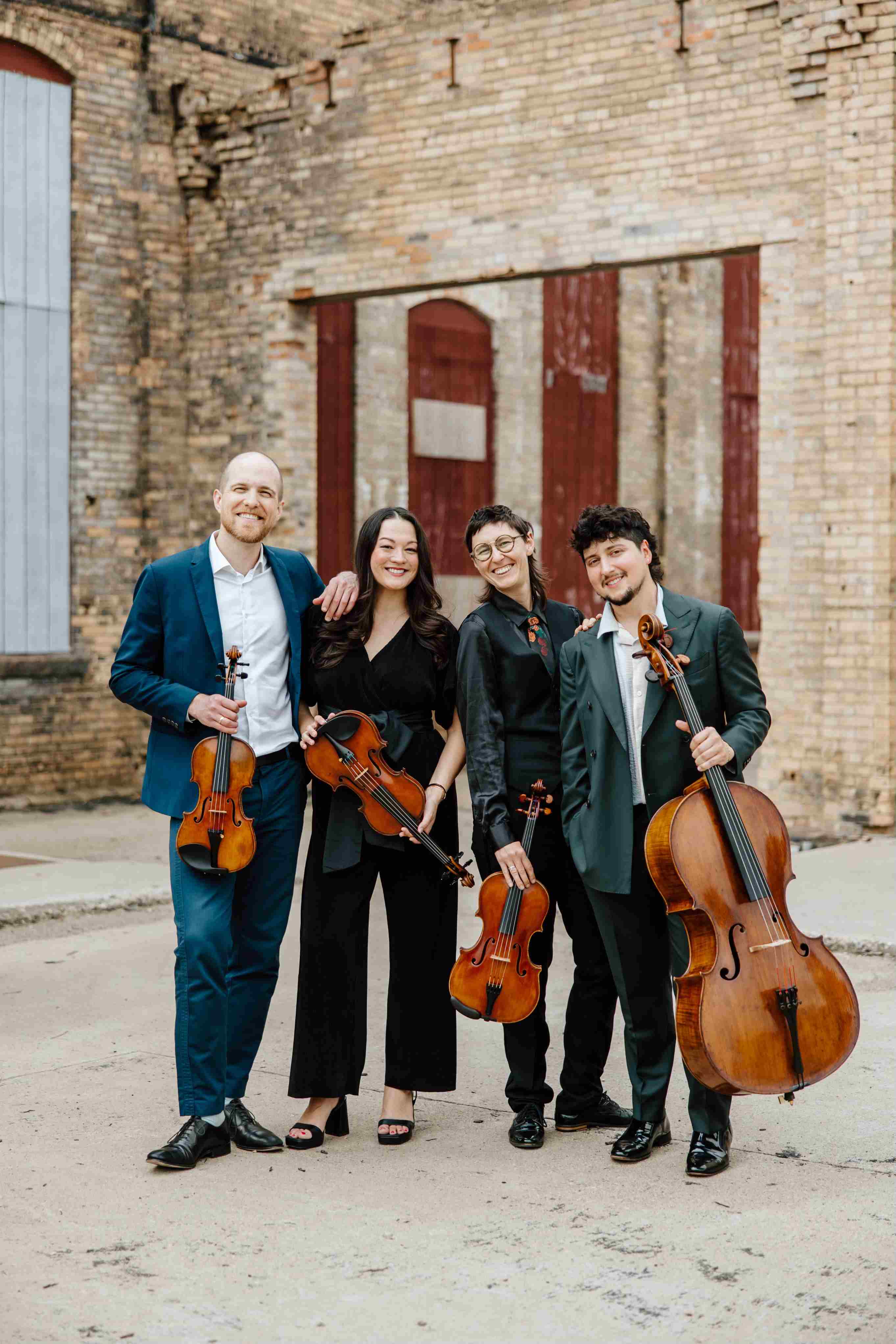2025-26 Amati Concert Series
The Amati String Instruments will be presented in a concert series featuring various musicians beginning in fall 2025 until spring 2026. The series has been curated by Dr. Véronique Mathieu (D.Mus), associate professor of Violin and the David L. Kaplan Chair in Music, a position made possible by a $2-million donation from USask alumni Xiaoping (Bob) Xu (MA’92, LLD’17) and Ling Chen (MA’90).
All concerts take place in Convocation Hall (PMB 120, 107 Administration Place) on the USask campus beginning at 3 PM.
General admission and student tickets will be available for purchase beginning Sept. 10, 2025. Season passes are also available.
Please note: Concert Season Pass Holders will be able to attend all Discovering the Amatis concerts, as well as invited to a reception with the artists following each performance.
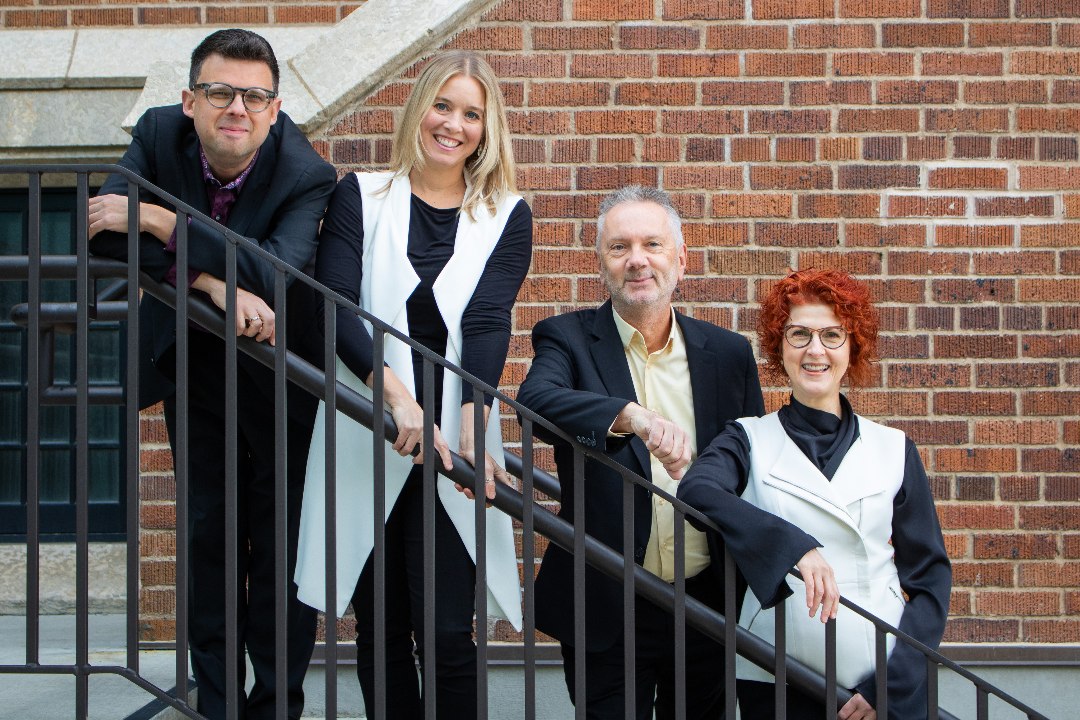
Horizons Baroque presents: Earth Blooms
Christian Robinson, violinMarie-Noelle Berthelet, flute
Valerie Hall, harpsichord
Simon Fryer, cello
Adria McCulloch, soprano
James Oswald (1710–1769) - Airs for the Seasons
Joseph Clemens Dall’Abaco (1710-1805) - Capriccio No. XIII in G for solo cello
Jean-Philippe Rameau - Le Rappel des Oiseaux for solo harpsichord
Johann Heinrich Schmelzer: Violin Sonata in A-Minor "Cucù"
George Frideric Handel: Sweet Bird
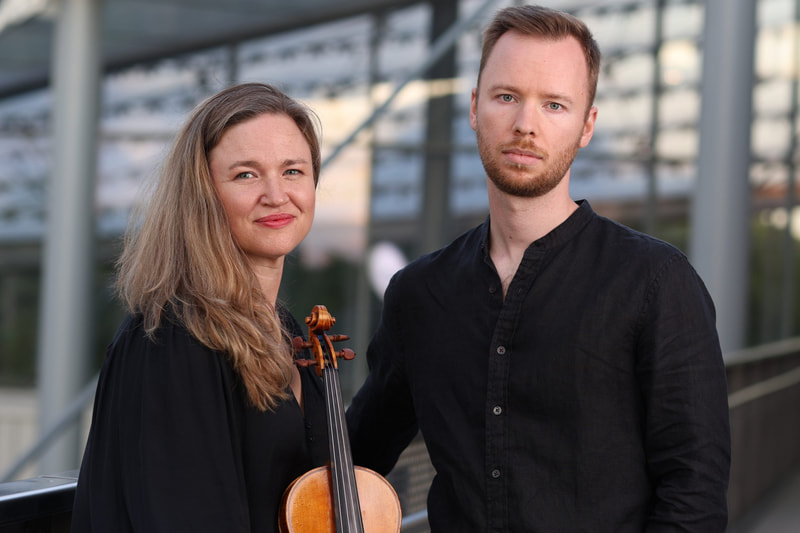
Saskatchewan born violinist Elation Pauls presents music from her debut album SUSTENANCE. She will perform with pianist Paul Williamson as the PAULS & PAUL Duo.
Frontier String Quartet
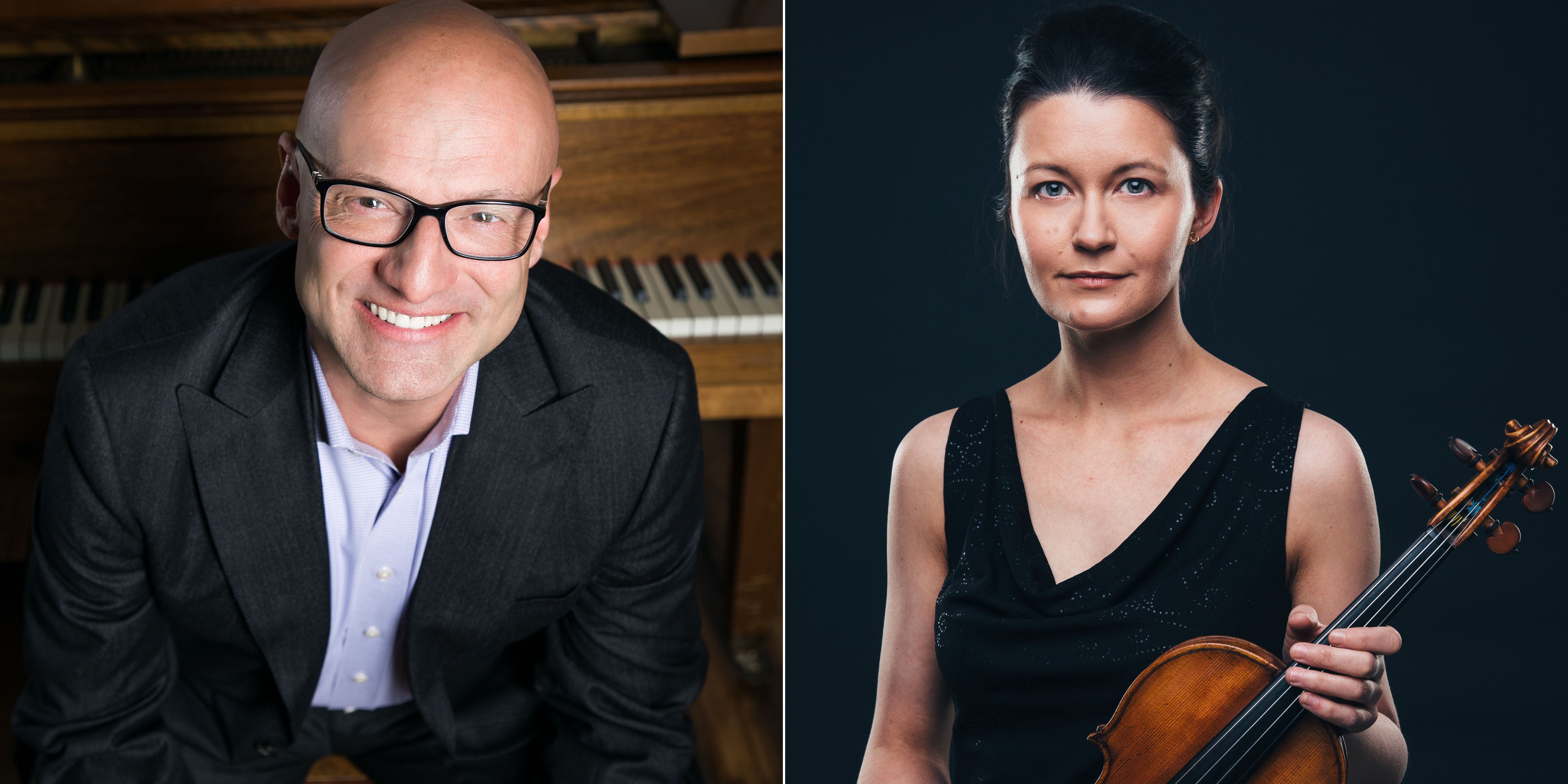
Season 1 (2022-23):
September 11, 2022
Robert Uchida, violin and Rafael Hoekman, cello
Fritz Kreisler: “Preludium and Allegro”
Jocelyn Morlock: “Serpentine Paths”
Kodaly: Duo op. 7
Teleman: Fantasia No. 1 for solo violin
Dall'abaco: Capriccio for solo cello
Handel-Halvorsen: “Passacaglia”
Celebrate the versatility and warmth of classical strings with an intimate concert by two principal string players of the Edmonton Symphony Orchestra. Concertmaster Robert Uchida has been applauded for his “ravishing sound, eloquence and hypnotic intensity” by Strings Magazine, while Rafael Hoekman is lauded as a ”rock star of the cello.” Their crowd-pleasing program journeys from traditional favorites through to brilliant contemporary selections inspired by world and folk music. This concert is presented in collaboration with Prairie Debut. Learn more.
October 23, 2022
CrossRoute String Quartet
L. v. Beethoven: Quartet Op. 130
Dinuk Wijeratne “A letter from the After-life” from Two Pop Songs on Antique Poems (2015)
The Crossroute String Quartet is comprised of the Principal string players of the Regina Symphony Orchestra. Concertmaster Christian Robinson, Principal 2nd violin HengHan Hou, Principal viola Jonathan Ward, and Principal cello Simon Fryer perform together regularly in the beautiful chamber music setting of Regina’s Government House and throughout the region. Increasingly in demand as a quartet, the members of Crossroute enjoy a rich and varied repertoire of music from the earliest string quartets to the present day, including the first cycle of the complete Beethoven string quartets in the city's history.
February 5, 2023
Duo Concertante
‘A miracle of knowledge and poetry.’ - Gramophone
Outstanding musicians, champions of new Canadian chamber music, and visionary artistic directors, Nancy Dahn and Timothy Steeves forge a musical legacy through live performances.
April 23, 2023:
Robert Koenig, Véronique Mathieu and friends
- D. Shostakovich: 5 Pieces for violin, viola, and piano
- C. Debussy: Sonata for violin and piano
- F. Schubert: Piano quintet ‘Trout’
Now in his third decade as a much sought-after performing artist, Saskatchewan-born pianist Robert Koenig has performed throughout the world to great acclaim as a collaborative pianist and chamber musician. His partnerships with many of today’s leading classical artists have seen him grace many of the world's most important stages including New York’s Carnegie Hall and Lincoln Center, Washington’s Kennedy Center for the Performing Arts, Boston’s Jordan Hall, San Francisco’s Herbst Theater, Seattle’s Benaroya Hall, Vancouver’s Chan Center, Tokyo’s Suntory Hall, Taiwan’s National Theater, Hong Kong’s City Hall, London’s Queen Elizabeth Hall, Paris’ Louvre Museum, Brussels’ BOZAR, and Amsterdam’s Het Concertgebouw.
Season 2 (2023-24):
October 15, 2023
The Voice of the Cello
Featuring: Stéphane Tétreault, cello & Sandra Murray, piano
Concert is presented in partnership with the Saskatoon Symphony Orchestra and Prairie Debut.
December 10, 2023
In Perfect Harmony
Featuring: Penderecki String Quartet
Program:
David Scott (b.1962)
String Quartet No.5 (2022)
*World premiere
Ludwig van Beethoven (1770-1827)
String Quartet in C Sharp Minor, Op.131
Erwin Schulhoff (1894-1942)
Pieces for String Quartet (1925)
February 18, 2024
Echoes of the Baroque
Featuring: Cellist André Micheletti & friends
Renée de Moissac, harpsichord
Joey Zhuang, flute
Véronique Mathieu, violin
Program:
F. Geminiani : Sonata in D minor for cello and basso continuo
A. Vivaldi: Sonata no. 8 in A minor for cello and basso continuo
J. S. Bach : Musical Offering, Trio Sonata no. 2
April 21, 2024
Featuring: Violinist Ioana Galu and cellist Sonja Kraus from the Rawlins Piano Trio
With guests Joey Zhuang, flute, and Véronique Mathieu, violin
Program:
J. M. Leclair: Sonata No. 2, Op. 3 for 2 violins
H.W. Henze: Serenade for cello solo
J.S. Bach: Cello Suite No. 1 in G major arranged for viola solo
R. Glière: Eight pieces for violin and cello
W.A. Mozart: Flute quartet in D major
Season 3 (2024-25):
October 20, 2024
Carissa Klopoushak & Emily Kruspe: A Couple of Violins
Carissa Klopoushak, originally from Saskatoon, leads a multifaceted musical life as a violinist, violist, chamber musician, and as Artistic Director of Ottawa Chamberfest. Toronto-born violinist Emily Kruspe was a member of the award-winning Rolston String Quartet and was recently named Principal Second Violin of the National Arts Centre Orchestra (NAC). Together, they are both members of the NAC Orchestra and the Ironwood Quartet. They met while both performing for Ottawa Chamberfest and have become partners in life as well as in music. They have two cats, Figaro and Rosie.
On the program, they present duos for two violins as well as for violin and viola, including music by Saskatoon’s Ryan Davis, Regina’s Elizabeth Raum, Jocelyn Morlock, plus favourites by Leclair, Bartok, Mozart, and Handel-Halvorsen.
December 8, 2024
Sunnat Ibragimov, cello
Robert Koenig, piano
Véronique Mathieu, violin
Program:
- Rachmaninoff (1873-1943): Prelude Op. 2, No. 1 for cello and piano
- Mushel (1909-1989): Sonata for cello and piano in D major (Canadian premiere)
- Christos Hatzis (b. 1953): Dance of the Dictators for piano trio
- B. Mendelssohn (1809-1847): Sonata for cello and piano in D major, Op. 58
March 16, 2025
Moonlight Trio
Carolyn Farnand, viola
Eric Braley, clarinet
Jennifer King, piano
Program:
S. Bach (1685-1750): From Cello Suite No. 2 in D minor, BWV 1008 - Prelude
Libby Larsen (b. 1950): Black Birds, Red Hills (1996)
Hindemith (1895-1963): Viola Sonata, op. 11, no. 4
Rebecca Clarke: Prelude, Allegro, and Pastorale (1941)
W.A. Mozart (1756-1791): "Kegelstatt" Trio in E-flat major, K. 498
April 27, 2025
Frontier String Quartet
President's Message
“The Amati instruments are among the University of Saskatchewan’s most remarkable treasures. A quartet so rare and beautifully crafted that they continue to capture attention, centuries after they were made. Built in 17th‑century Italy by members of the Amati family, these instruments have travelled a long way from the workshops where the violin was first perfected. Today, they sit at the heart of our Saskatoon campus, reminding us how extraordinary it is for a university to steward a complete Amati quartet.
Their journey to Saskatchewan is a story worth telling. It begins in the 1950s with a local grain farmer with a deep love of music, Steve Kolbinson, who set out to bring these instruments together. He searched internationally, piece by piece, driven by the belief that masterpieces like these should be heard and shared, not locked away. His determination and generosity brought the quartet to USask, making our university one of the very few in the world entrusted with instruments of this calibre.
As we present the Amati Concert Series, we carry that story forward. Each performance brings these centuries‑old instruments back to life, connecting the past with the present in a way few institutions can offer. I invite you to join us in experiencing the beauty, rarity, and inspiration of their music, and to take pride in the remarkable legacy that lives here in our province at the University of Saskatchewan.”
- Vince Bruni-Bossio, president and vice-chancellor of the University of Saskatchewan
Historical Background
The Amati quartet includes a viola, cello, and two violins that were handcrafted in the Italian city of Cremona in the 1600s by members of the famous Amati family. Considered pioneers in the practice of constructing bowed stringed instruments—or the first great luthiers—the Amati family have crafted some of the world's most sought-after instruments.
This collection of rare fine instruments has been assembled by Stephen Kolbinson, a grain farmer from Kindersley, Saskatchewan. Kolbinson developed a passionate curiosity for old Italian instruments, and traveled the world looking for instruments to add to his collection. A close friend of Kolbinson, Murray Adaskin played an important role in the University of Saskatchewan’s acquisition of the Amati instruments in 1959.
- The 1637 violin made by Nicola Amati previously belonged to a world renowned soloist: Australian concert violinist Daisy Kennedy.
- Smuggled out of France for safekeeping during the Second World War, the 1627 violin was made by Antonio and Girolamo. It was later owned by the concertmaster of the London Philharmonic in England.
- Made by Antonio and Girolamo Amati in 1607, the viola was commissioned by the Italian Borghese family, whose head at the time was Pope Paul V. The Borghese family coat-of-arms is painted on the back of the viola.
- The cello was made in 1690 by Girolamo Amati II, and was lost for decades in an attic in the Earl of Plymouth’s Castle in England, along with other fine instruments. On the back of the cello, a red seal depicts the joint arms of the Earl of Plymouth and the Clive family of India, commemorating an earlier marriage in the family.
Discover the Instruments




Events
In the News
USask News
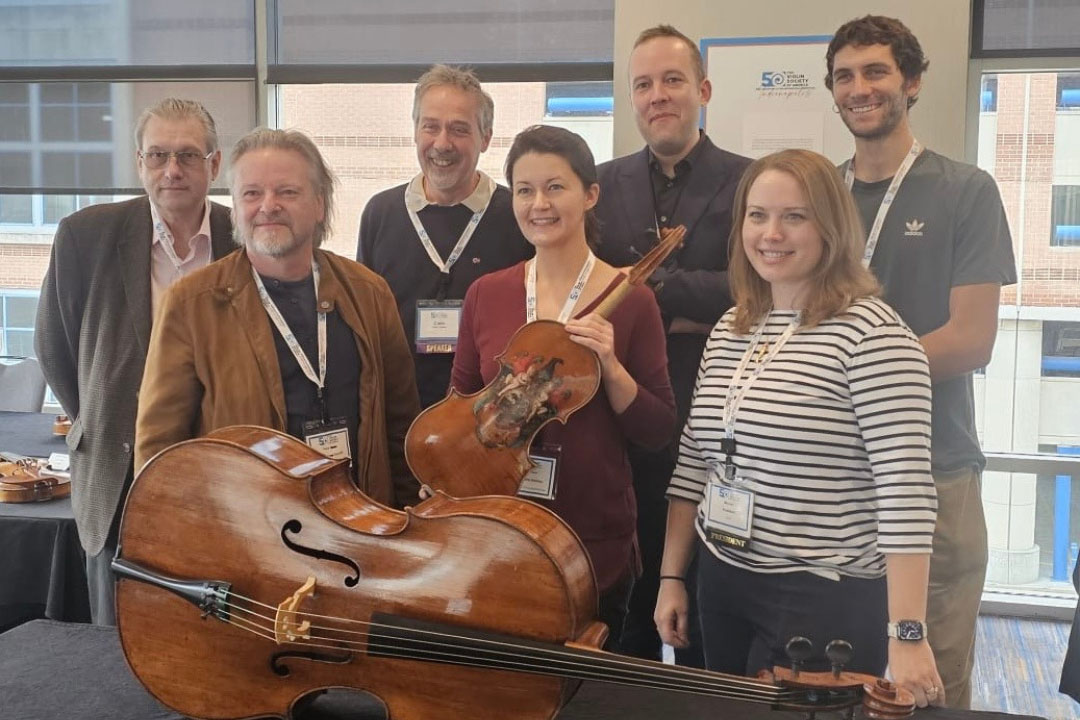
USask’s Amati quartet studied by instrument experts at international event
November 28, 2024
By: Brooke Kleiboer
The University of Saskatchewan’s Amati quartet recently took an international journey to be studied by music experts, shining a spotlight on how the renowned Amati family crafted and styled their fine instruments almost 350 years ago.
University Affairs
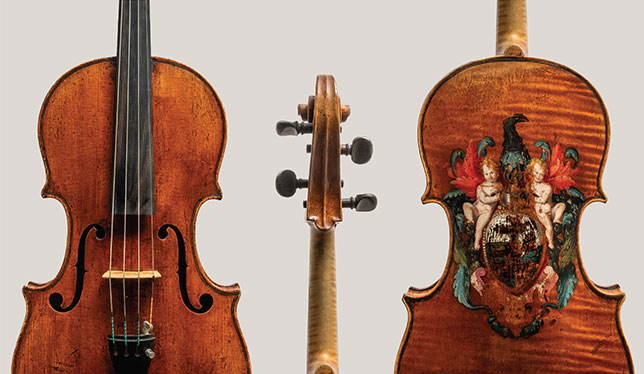
USask offers musical time-travel with the Amati strings
December 27, 2022
By: Shauna McGinn
How a set of nearly 400-year-old Italian instruments ended up at the University of Saskatchewan is a story true to the can-do nature of the Prairie province. In 1959, local grain farmer Steve Kolbinson came to the school’s music department with a stunning donation: a viola, cello, and two violins, forming what’s known as the Amati quartet.
Saskatoon StarPhoenix
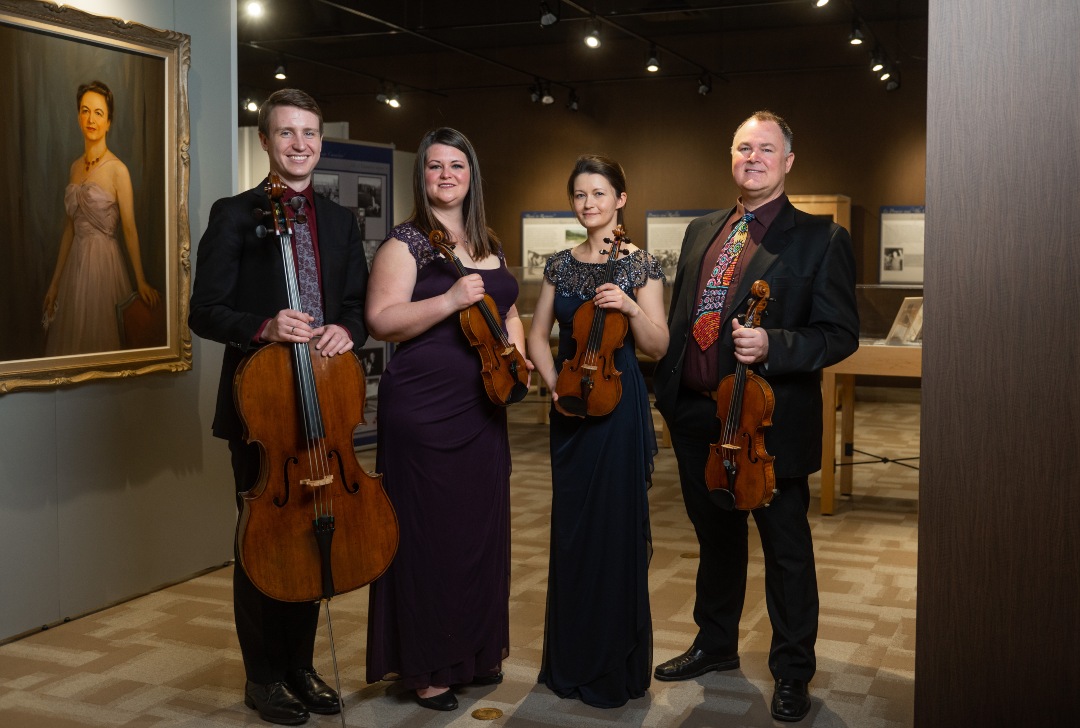
University of Saskatchewan’s Amati instruments reunite for two concerts with new performers
April 27, 2022
By: Jocelyn Bennett
Nearly four years after they were last presented as the full quartet, the University of Saskatchewan’s Amati instruments will emerge for two public performances this weekend.
“This is the only example of a quartet of Amati instruments in the whole country. We’re very lucky to have them in playing condition,” said Veronique Mathieu, U of S associate professor of violin and the David L. Kaplan Chair in Music.


